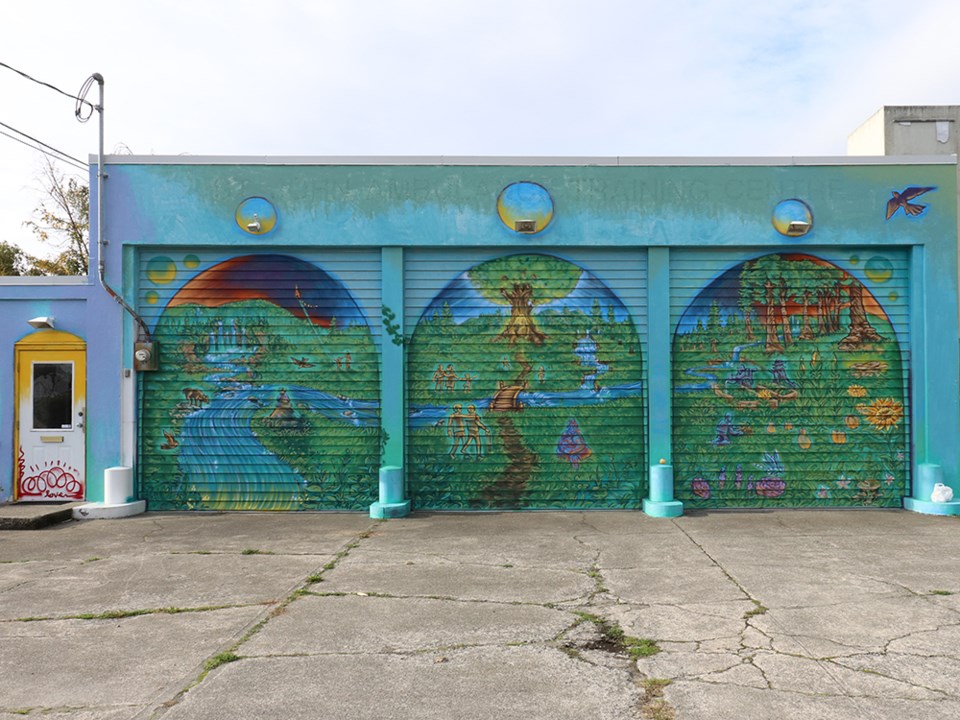With National Addictions Awareness Week taking place from November 24 to 30, recovery efforts in the qathet region are going strong.
Steven Hall, public relations manager with recovery institution Together We Can, said while there are no official observations of the week within his organization, there is widespread sharing of personal stories from people who are going through or have gone through the recovery process.
“What we primarily do at this time is a lot of social media and sharing stories for our alumni and things like that,” said Hall. “What we do, throughout the year, is capture a lot of people’s stories on video and we talk about their experiences, strength and hope. Some are happy to share a written story, so we’ll post those types of things as well.
“We are not trying to make it a promo for Together We Can, but to show recovery is possible. So, that’s what we are going to be looking at this year.”
Hall said that sharing personal stories, in person and through media, is the best way to break through the stigma that goes along with alcohol or substance use. He said the sharing of stories is completely voluntary among those who do so.
Going along with the traditions of 12-step groups, Hall said those sharing their stories typically don’t use their last names.
“There’s the anonymity piece when it comes to the 12-step program, so we’re very aware of that,” he added.
Hall said Together We Can has about 130 staff members provincially, and of that more than 80 per cent are in recovery, with the majority of them having gone through Together We Can. Many of the people in the front line have extensive experience with recovery, and staff members have risen through the ranks to take important leadership roles in the organization.
“It really shows people that you can create a really good life in recovery,” said Hall. “It’s inspiring for our clients, alumni and staff.”
Together We Can operates out of 37 residential homes, with six primary care programs, where residents spend 60 to 90 days in treatment, where they are getting their medical needs, counselling, their food and all the other necessities. The institution has more than 400 beds to accommodate those in recovery, including in qathet. In addition to primary care, Together We Can also operates what is referred to as sober living, which is where those leaving primary care can go to be somewhere safe.
“The cool thing with sober living is their rent includes food, utilities, Wi-Fi, even your laundry soap,” said Hall. “All your basics are covered. Those in sober living have to be going to school, volunteering or working. You can’t just go into the second stage and play video games or watch Netflix all day. You have to be bettering yourself.”
Hall said Together We Can surveyed residents of the various programs from July 1, 2019, to June 30, 2024. In that five-year period, Together We Can took in 5,681 people into primary care. Of those, 80 per cent accessed sober living, for an average of six months. Of that number, 72 per cent stayed abstinent or substance free for the entire time they were in sober living.
Hall said that without programs such as sober living, people leaving primary care often go back to shelters, back to old roommates who are still partying, and those sorts of environments.
“They have difficulty maintaining sobriety because of the environment they are put back in,” added Hall.
He said Together We Can treats people with drug and alcohol addictions and that the centres also handle some “process addictions,” such as gambling and eating disorders. He said while in care, those in recovery also work on transference, so they don’t transfer their dependency on alcohol or drugs into some other addictive form of behaviour.
To further knowledge about addictions, Together We Can has been building partnerships with harm reduction services, detoxes, hospital emergency rooms and other like-minded services. Hall said a number of Indigenous communities have also reached out to his organization, which is offering programming that is geared toward Indigenous healing.
“We serve 1,200 people a year,” added Hall, “so we’re building an army out there who are clean and sober and going back to their communities.”
Join the Peak's email list for the top headlines right in your inbox Monday to Friday.



